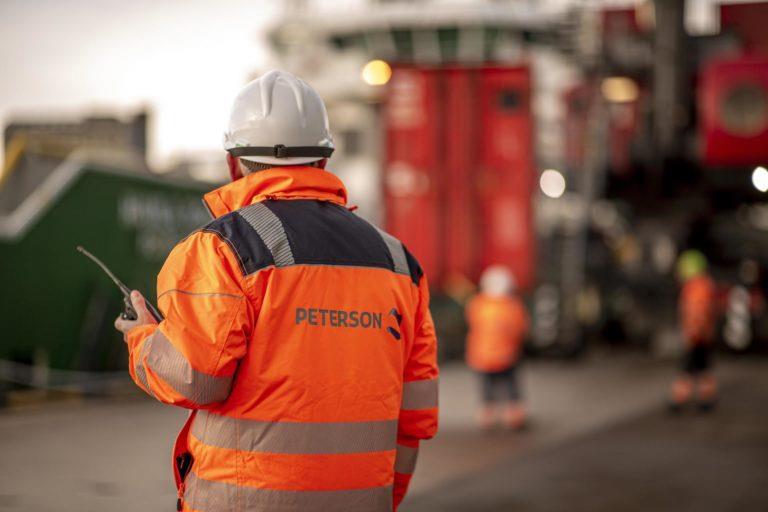
It is an interesting time to be in the oil and gas industry as we embrace the “green revolution”, against a backdrop of energy security concerns as a result of conflict in Ukraine. For organisations, there are many things to consider as they create roadmaps for the future.
At Peterson Energy Logistics, one of the world’s leading providers of integrated logistics services to the energy sector, they are very clear on their strategic direction – continuing to support oil and gas clients with best-in-class logistics models, while also supporting emerging renewables markets with wind energy at the forefront.
Already experts in the field of oil and gas, solutions-focused Peterson is applying that expertise to renewable energy, too. Working with offshore wind clients is nothing new for the organisation, as they are already active with offshore wind projects in the Netherlands, and have been supporting offshore assets for more than 50 years. They will be capitalising on this experience – as well as the knowledge and skills of their workforce across its global sites – as the transition evolves.
“We are not new to this, we are already doing this and we want to do more,” insists Jason Hendry, managing director for England and Renewables Strategy.
For decades, Peterson has been a trusted partner to its customer base in the oil and gas sector, and now – as part of its renewables strategy – it is positioning itself as a trusted partner in this industry, too.
The energy MD is passionate about the business’s direction and about the changes in the industry as a whole.
“I believe passionately in the energy transition and recognise the importance of continuing to support our oil and gas clients as they optimise and maximise recovery. The expectation is that the energy transition will be accelerated at the same time, and although this will bring its challenges, the climate imperative is clear. Businesses will also prosper, but it will take a more collaborative operator and supply chain approach to deliver a just energy transition,” he said.
“We want to get things right for the future, for our families, and for the planet, ultimately.”
With its experience, expertise and bases around the UK and the Netherlands, Peterson is well placed to support further projects in the North Sea and beyond. And, in addition to offshore wind energy, Peterson will be supporting existing and new clients in all sources of low-carbon energy.
Jason added: “In 2015, we applied our experience, knowledge and transferable skills to successfully enter the nuclear sector for the first time and today we are doing the same in the renewables sector. We are advanced in our thinking – as well as wind energy, there is so much more: Solar, carbon capture and storage, hydrogen, tidal and biomass – and one of our strategic pillars is market and product diversification. We want to provide logistics support to all sources of low-carbon energy.”
But how does Peterson Energy Logistics plan to achieve its strategic goals? One way is by establishing strategically located Centres of Excellence.
Jason continued: “We pride ourselves in already having Centres of Excellence and they will support renewables activities in the North Sea, from the most appropriate locations, whether that is in Shetland, Edzell, Lowestoft, Den Helder, Aberdeen, or any other suitable location.”
Peterson remains focused on supporting existing clients on their transitional journey (and breaking into new markets) by understanding what clients want and offering a range of solutions, which are value-adding – for example, it can offer end-to-end visibility of the supply chain thanks to its Lighthouse suite of digital applications.
Jason added: “We work hard to understand our clients and what their challenges are to help provide best-value solutions for them. We can give solutions based on our decades of experience in oil and gas, and help to shape future renewables-specific logistics strategies. It makes complete sense to take advantage of this experience and the tried and tested ways of doing things whilst embracing fresh thinking to further optimise and fine tune operating models where possible.”
However, like many organisations diversifying in a bid to support large-scale projects, Peterson is well equipped to move forward and overcome these challenges and that is because of its talented workforce and their transferrable skills.
Jason added: “Our people are also a fundamental cornerstone of our renewables strategy. Not only are they familiar with planning and co-ordinating resources within a multi-stakeholder setting, but they also understand the fundamentals of supporting critical assets in the energy supply chain, and are familiar with the demands of working in a safety-critical environment.”
Recommended for you
